Frequent persons on Ukraine's street signs
countries
63 names / 897 streets
Taras Shevchenko
 153
Taras Hryhorovych Shevchenko was a Ukrainian poet, writer, artist, public and political figure, folklorist and ethnographer. He was a fellow of the Imperial Academy of Arts and a member of the...
153
Taras Hryhorovych Shevchenko was a Ukrainian poet, writer, artist, public and political figure, folklorist and ethnographer. He was a fellow of the Imperial Academy of Arts and a member of the...
Vladimir Lenin
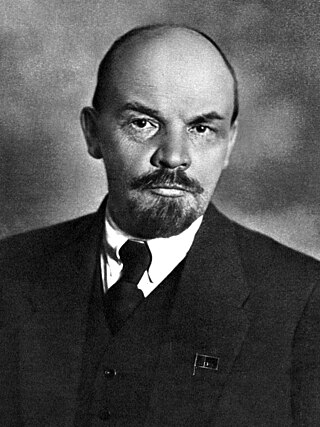 68
Vladimir Ilyich Ulyanov, better known as Vladimir Lenin, was a Russian revolutionary, Soviet politician, and political theorist who was the founder and first leader of the Russian Soviet Federative...
68
Vladimir Ilyich Ulyanov, better known as Vladimir Lenin, was a Russian revolutionary, Soviet politician, and political theorist who was the founder and first leader of the Russian Soviet Federative...
Yuri Gagarin
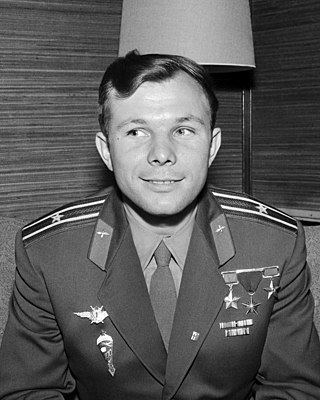 61
Yuri Alekseyevich Gagarin was a Soviet pilot and cosmonaut who, aboard the first successful crewed spaceflight, became the first human to journey into outer space. Travelling on Vostok 1, Gagarin...
61
Yuri Alekseyevich Gagarin was a Soviet pilot and cosmonaut who, aboard the first successful crewed spaceflight, became the first human to journey into outer space. Travelling on Vostok 1, Gagarin...
Ivan Franko
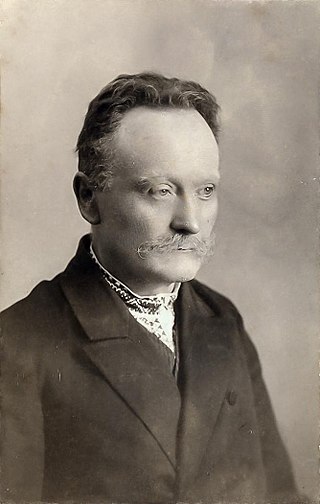 42
Ivan Yakovych Franko was a Ukrainian poet, writer, social and literary critic, journalist, translator, economist, political activist, doctor of philosophy, ethnographer, and the author of the first...
42
Ivan Yakovych Franko was a Ukrainian poet, writer, social and literary critic, journalist, translator, economist, political activist, doctor of philosophy, ethnographer, and the author of the first...
Mykhailo Hrushevsky
 40
Mykhailo Serhiiovych Hrushevsky was a Ukrainian academician, politician, historian and statesman who was one of the most important figures of the Ukrainian national revival of the early 20th century....
40
Mykhailo Serhiiovych Hrushevsky was a Ukrainian academician, politician, historian and statesman who was one of the most important figures of the Ukrainian national revival of the early 20th century....
Bohdan Khmelnytsky
 39
Bohdan Zynoviy Mykhailovych Khmelnytsky was a Ruthenian nobleman and military commander of Ukrainian Cossacks as Hetman of the Zaporozhian Host, which was then under the suzerainty of the...
39
Bohdan Zynoviy Mykhailovych Khmelnytsky was a Ruthenian nobleman and military commander of Ukrainian Cossacks as Hetman of the Zaporozhian Host, which was then under the suzerainty of the...
Lesya Ukrainka
 39
Lesya Ukrainka was one of Ukrainian literature's foremost writers, best known for her poems and plays. She was also an active political, civil, and feminist activist.
39
Lesya Ukrainka was one of Ukrainian literature's foremost writers, best known for her poems and plays. She was also an active political, civil, and feminist activist.
Maxim Gorky
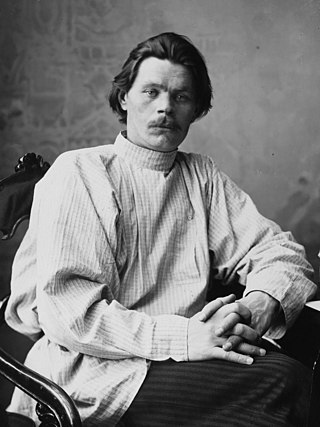 28
Alexei Maximovich Peshkov, popularly known as Maxim Gorky, was a Russian and Soviet writer and socialism proponent. He was nominated five times for the Nobel Prize in Literature. Before his success...
28
Alexei Maximovich Peshkov, popularly known as Maxim Gorky, was a Russian and Soviet writer and socialism proponent. He was nominated five times for the Nobel Prize in Literature. Before his success...
Yaroslav the Wise
 20
Yaroslav I Vladimirovich, better known as Yaroslav the Wise, was Grand Prince of Kiev from 1019 until his death in 1054. He was also earlier Prince of Novgorod from 1010 to 1034 and Prince of Rostov...
20
Yaroslav I Vladimirovich, better known as Yaroslav the Wise, was Grand Prince of Kiev from 1019 until his death in 1054. He was also earlier Prince of Novgorod from 1010 to 1034 and Prince of Rostov...
Sadovaya Street
 19
Sadovaya Street or Garden Street is a major thoroughfare in Saint Petersburg, Russia, passing through the historic city center.
19
Sadovaya Street or Garden Street is a major thoroughfare in Saint Petersburg, Russia, passing through the historic city center.
Nikolai Gogol
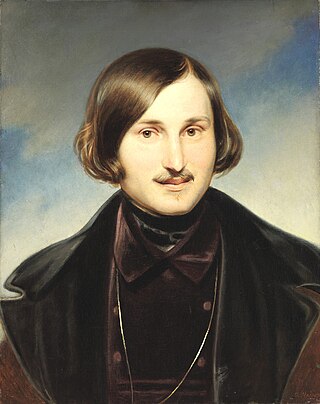 18
Nikolai Vasilyevich Gogol was a Russian novelist, short story writer, and playwright of Ukrainian origin.
18
Nikolai Vasilyevich Gogol was a Russian novelist, short story writer, and playwright of Ukrainian origin.
Vladimir the Great
 16
Vladimir I Sviatoslavich or Volodymyr I Sviatoslavych, given the epithet "the Great", was Prince of Novgorod from 970 and Grand Prince of Kiev from 978 until his death in 1015. The Eastern Orthodox...
16
Vladimir I Sviatoslavich or Volodymyr I Sviatoslavych, given the epithet "the Great", was Prince of Novgorod from 970 and Grand Prince of Kiev from 978 until his death in 1015. The Eastern Orthodox...
Alexander Pushkin
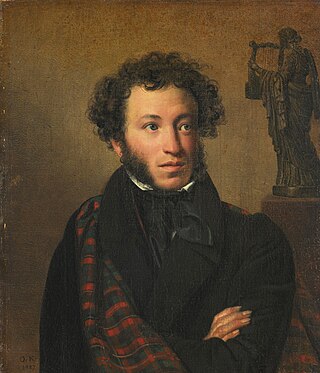 16
Alexander Sergeyevich Pushkin was a Russian poet, playwright, and novelist of the Romantic era. He is considered by many to be the greatest Russian poet, as well as the founder of modern Russian...
16
Alexander Sergeyevich Pushkin was a Russian poet, playwright, and novelist of the Romantic era. He is considered by many to be the greatest Russian poet, as well as the founder of modern Russian...
Daniel of Galicia
 15
Daniel of Galicia or Danylo Romanovych was a King of Ruthenia, Prince (Kniaz) of Galicia (Halych) (1205–1255), Peremyshl (1211), and Volodymyr (1212–1231). He was crowned by a papal archbishop in...
15
Daniel of Galicia or Danylo Romanovych was a King of Ruthenia, Prince (Kniaz) of Galicia (Halych) (1205–1255), Peremyshl (1211), and Volodymyr (1212–1231). He was crowned by a papal archbishop in...
Mykhailo Kotsiubynsky
 15
Mykhailo Mykhailovych Kotsiubynsky was a Ukrainian author whose writings described typical Ukrainian life at the start of the 20th century. Kotsiubynsky's early stories were described as examples of...
15
Mykhailo Mykhailovych Kotsiubynsky was a Ukrainian author whose writings described typical Ukrainian life at the start of the 20th century. Kotsiubynsky's early stories were described as examples of...
Sergei Kirov
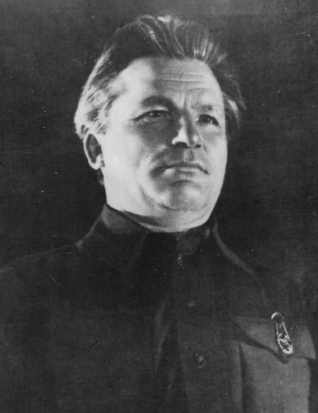 13
Sergei Mironovich Kirov was a Russian and Soviet politician and Bolshevik revolutionary.
13
Sergei Mironovich Kirov was a Russian and Soviet politician and Bolshevik revolutionary.
Vasyl Stus
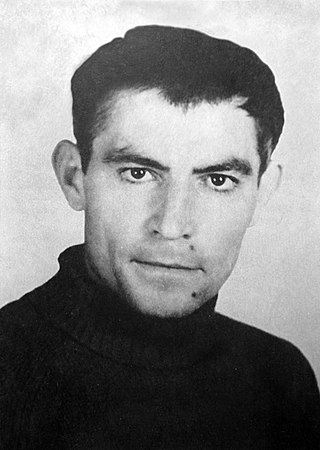 13
Vasyl Semenovych Stus was a Ukrainian poet, translator, literary critic, journalist, and an active member of the Ukrainian dissident movement. For his political convictions, his works were banned by...
13
Vasyl Semenovych Stus was a Ukrainian poet, translator, literary critic, journalist, and an active member of the Ukrainian dissident movement. For his political convictions, his works were banned by...
Francis II Rákóczi
 13
Francis II Rákóczi was a Hungarian nobleman and leader of Rákóczi's War of Independence against the Habsburgs in 1703–1711 as the prince of the Estates Confederated for Liberty of the Kingdom of...
13
Francis II Rákóczi was a Hungarian nobleman and leader of Rákóczi's War of Independence against the Habsburgs in 1703–1711 as the prince of the Estates Confederated for Liberty of the Kingdom of...
Valery Chkalov
 12
Valery Pavlovich Chkalov was a test pilot awarded the title Hero of the Soviet Union (1936).
12
Valery Pavlovich Chkalov was a test pilot awarded the title Hero of the Soviet Union (1936).
Alexander Dukhnovych
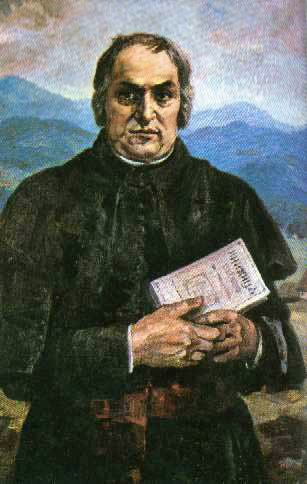 12
Alexander Vasilyevich Dukhnovych was an Transcarpathian Ruthenian priest, poet, writer, pedagogue, and social activist of the Russophile orientation. He is considered as the awakener of the Rusyns.
12
Alexander Vasilyevich Dukhnovych was an Transcarpathian Ruthenian priest, poet, writer, pedagogue, and social activist of the Russophile orientation. He is considered as the awakener of the Rusyns.
International Workers' Day
 12
International Workers' Day, also known as Labour Day in some countries and often referred to as May Day, is a celebration of labourers and the working classes that is promoted by the international...
12
International Workers' Day, also known as Labour Day in some countries and often referred to as May Day, is a celebration of labourers and the working classes that is promoted by the international...
Mikhail Lomonosov
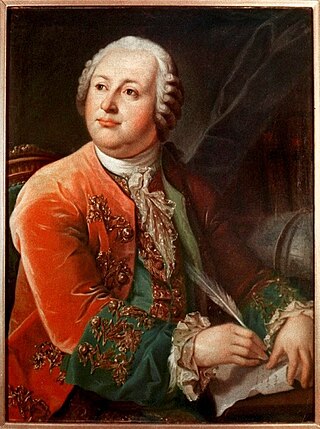 12
Mikhail Vasilyevich Lomonosov was a Russian polymath, scientist and writer, who made important contributions to literature, education, and science. Among his discoveries were the atmosphere of Venus...
12
Mikhail Vasilyevich Lomonosov was a Russian polymath, scientist and writer, who made important contributions to literature, education, and science. Among his discoveries were the atmosphere of Venus...
Stepan Bandera
 11
Stepan Andriyovych Bandera was a Ukrainian far-right leader of the radical militant wing of the Organization of Ukrainian Nationalists (OUN-B).
11
Stepan Andriyovych Bandera was a Ukrainian far-right leader of the radical militant wing of the Organization of Ukrainian Nationalists (OUN-B).
Mikhail Frunze
 10
Mikhail Vasilyevich Frunze was a Soviet revolutionary, politician, army officer and military theorist. Born to a Bessarabian father and a Russian mother in Russian Turkestan, Frunze attended the...
10
Mikhail Vasilyevich Frunze was a Soviet revolutionary, politician, army officer and military theorist. Born to a Bessarabian father and a Russian mother in Russian Turkestan, Frunze attended the...
Ivan Kotliarevsky
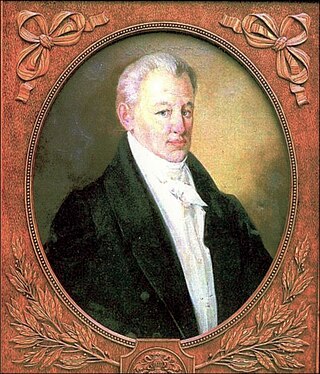 10
Ivan Petrovych Kotliarevsky was a Ukrainian writer, poet and playwright, social activist, regarded as the pioneer of modern Ukrainian literature. Kotliarevsky was a veteran of the Russo-Turkish War.
10
Ivan Petrovych Kotliarevsky was a Ukrainian writer, poet and playwright, social activist, regarded as the pioneer of modern Ukrainian literature. Kotliarevsky was a veteran of the Russo-Turkish War.
Karl Marx
 9
Karl Marx was a German-born philosopher, economist, political theorist, historian, sociologist, journalist, and revolutionary socialist. His best-known works are the 1848 pamphlet The Communist...
9
Karl Marx was a German-born philosopher, economist, political theorist, historian, sociologist, journalist, and revolutionary socialist. His best-known works are the 1848 pamphlet The Communist...
Vladimir Komarov
 9
Vladimir Mikhaylovich Komarov was a Soviet test pilot, aerospace engineer, and cosmonaut. In October 1964, he commanded Voskhod 1, the first spaceflight to carry more than one crew member. He became...
9
Vladimir Mikhaylovich Komarov was a Soviet test pilot, aerospace engineer, and cosmonaut. In October 1964, he commanded Voskhod 1, the first spaceflight to carry more than one crew member. He became...
Andrey Sheptytsky
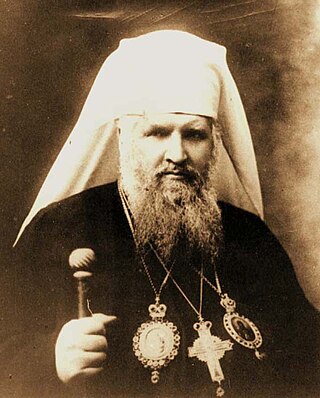 9
Andrey Sheptytsky, OSBM was the Greek Catholic Archbishop of Lviv and Metropolitan of Halych from 1901 until his death in 1944. His tenure in office spanned two world wars and seven political...
9
Andrey Sheptytsky, OSBM was the Greek Catholic Archbishop of Lviv and Metropolitan of Halych from 1901 until his death in 1944. His tenure in office spanned two world wars and seven political...
Pyotr Ilyich Tchaikovsky
 8
Pyotr Ilyich Tchaikovsky was a Russian composer of the Romantic period. He was the first Russian composer whose music would make a lasting impression internationally. Tchaikovsky wrote some of the...
8
Pyotr Ilyich Tchaikovsky was a Russian composer of the Romantic period. He was the first Russian composer whose music would make a lasting impression internationally. Tchaikovsky wrote some of the...
Avgustyn Voloshyn
 8
The Rt Rev. Avgustyn Ivanovych Monsignor Voloshyn , also known as Augustin Voloshyn, was a Carpatho-Ukrainian politician, teacher, essayist, and Greek Catholic
priest of the Mukacheve eparchy in...
8
The Rt Rev. Avgustyn Ivanovych Monsignor Voloshyn , also known as Augustin Voloshyn, was a Carpatho-Ukrainian politician, teacher, essayist, and Greek Catholic
priest of the Mukacheve eparchy in...
Подгорная, Нинель Ивановна
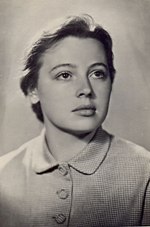 8
Нинель Ивановна Подгорная — советская и российская театральная актриса.
8
Нинель Ивановна Подгорная — советская и российская театральная актриса.
Ivan Mazepa
 8
Ivan Stepanovych Mazepa was a Ukrainian military, political, and civic leader who served as the Hetman of the Zaporizhian Host and the Left-bank Ukraine in 1687–1708. The historical events of...
8
Ivan Stepanovych Mazepa was a Ukrainian military, political, and civic leader who served as the Hetman of the Zaporizhian Host and the Left-bank Ukraine in 1687–1708. The historical events of...
Yakov Sverdlov
 7
Yakov Mikhailovich Sverdlov was a Bolshevik Party administrator and chairman of the All-Russian Central Executive Committee from 1917 to 1919. He is sometimes regarded as the first head of state of...
7
Yakov Mikhailovich Sverdlov was a Bolshevik Party administrator and chairman of the All-Russian Central Executive Committee from 1917 to 1919. He is sometimes regarded as the first head of state of...
Markiian Shashkevych
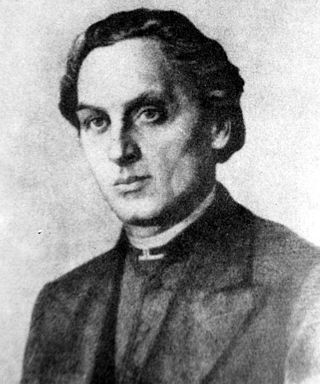 7
Markiian Semenovych Shashkevych was a priest of the Ukrainian Greek Catholic Church, a poet, a translator, and the leader of the literary revival in Right-bank Ukraine.
7
Markiian Semenovych Shashkevych was a priest of the Ukrainian Greek Catholic Church, a poet, a translator, and the leader of the literary revival in Right-bank Ukraine.
Alexander Suvorov
 7
Count Alexander Vasilyevich Suvorov-Rymniksky, Prince of Italy, was a Russian general and military theorist in the service of the Russian Empire.
7
Count Alexander Vasilyevich Suvorov-Rymniksky, Prince of Italy, was a Russian general and military theorist in the service of the Russian Empire.
Ivan Michurin (biologist)
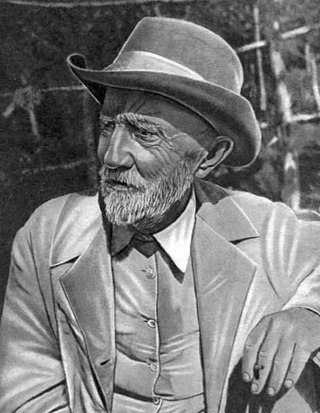 7
Ivan Vladimirovich Michurin was a Russian practitioner of selection to produce new types of crop plants, Honorable Member of the Soviet Academy of Sciences, and academician of the Lenin All-Union...
7
Ivan Vladimirovich Michurin was a Russian practitioner of selection to produce new types of crop plants, Honorable Member of the Soviet Academy of Sciences, and academician of the Lenin All-Union...
Ivan Bohun
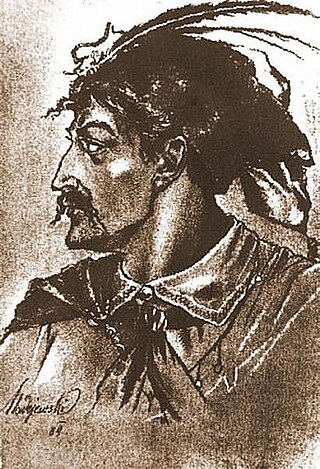 6
Ivan Bohun was a Zaporozhian Cossack colonel. Close associate and friend of Bohdan Khmelnytsky, he opposed both the pacts with Polish–Lithuanian Commonwealth and with Tsardom of Russia.
6
Ivan Bohun was a Zaporozhian Cossack colonel. Close associate and friend of Bohdan Khmelnytsky, he opposed both the pacts with Polish–Lithuanian Commonwealth and with Tsardom of Russia.
Yevhen Konovalets
 5
Yevhen Mykhailovych Konovalets was a Ukrainian military commander and political leader of the Ukrainian nationalist movement.
5
Yevhen Mykhailovych Konovalets was a Ukrainian military commander and political leader of the Ukrainian nationalist movement.
Olga of Kiev
 5
Olga was a regent of Kievan Rus' for her son Sviatoslav from 945 until 960. Following her baptism, Olga took the name Elenа. She is known for her subjugation of the Drevlians, a tribe that had killed...
5
Olga was a regent of Kievan Rus' for her son Sviatoslav from 945 until 960. Following her baptism, Olga took the name Elenа. She is known for her subjugation of the Drevlians, a tribe that had killed...
Viacheslav Chornovil
 5
Viacheslav Maksymovych Chornovil was a Ukrainian politician and Soviet dissident. As a prominent Ukrainian dissident in the Soviet Union, he was arrested multiple times in the 1960s, 1970s, and 1980s...
5
Viacheslav Maksymovych Chornovil was a Ukrainian politician and Soviet dissident. As a prominent Ukrainian dissident in the Soviet Union, he was arrested multiple times in the 1960s, 1970s, and 1980s...
Roman Shukhevych
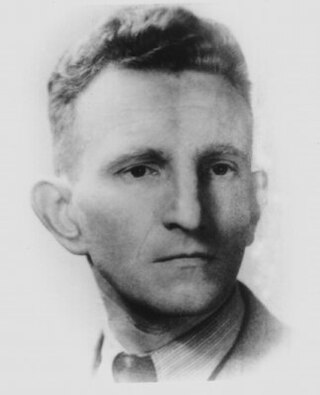 5
Roman-Taras Yosypovych Shukhevych was a Ukrainian nationalist and a military leader of the nationalist Ukrainian Insurgent Army (UPA), which during the Second World War fought against the Soviet...
5
Roman-Taras Yosypovych Shukhevych was a Ukrainian nationalist and a military leader of the nationalist Ukrainian Insurgent Army (UPA), which during the Second World War fought against the Soviet...
Volodymyr Ivasyuk
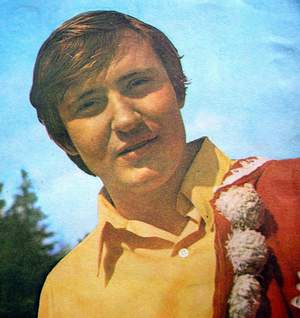 5
Volodymyr Mykhailovych Ivasyuk was a Ukrainian songwriter, composer and poet. He is the author and composer of the widely popular song "Chervona Ruta" popularized by Sofia Rotaru in 1971, and later...
5
Volodymyr Mykhailovych Ivasyuk was a Ukrainian songwriter, composer and poet. He is the author and composer of the widely popular song "Chervona Ruta" popularized by Sofia Rotaru in 1971, and later...
Leo Tolstoy
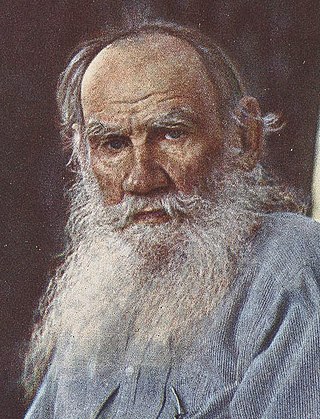 4
Count Lev Nikolayevich Tolstoy, usually referred to in English as Leo Tolstoy, was a Russian writer. He is regarded as one of the greatest and most influential authors of all time. He received...
4
Count Lev Nikolayevich Tolstoy, usually referred to in English as Leo Tolstoy, was a Russian writer. He is regarded as one of the greatest and most influential authors of all time. He received...
Petro Grigorenko
 4
Petro Grigorenko or Petro Hryhorovych Hryhorenko was a high-ranking Soviet Army commander of Ukrainian descent, who in his fifties became a dissident and a writer, one of the founders of the human...
4
Petro Grigorenko or Petro Hryhorovych Hryhorenko was a high-ranking Soviet Army commander of Ukrainian descent, who in his fifties became a dissident and a writer, one of the founders of the human...
Amet-khan Sultan
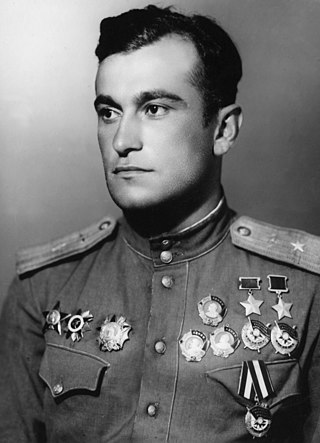 4
Amet-khan Sultan was a highly decorated Crimean Tatar flying ace in the Soviet Air Force with 30 personal and 19 shared kills who was twice awarded the title Hero of the Soviet Union. Despite having...
4
Amet-khan Sultan was a highly decorated Crimean Tatar flying ace in the Soviet Air Force with 30 personal and 19 shared kills who was twice awarded the title Hero of the Soviet Union. Despite having...
Hryhorii Skovoroda
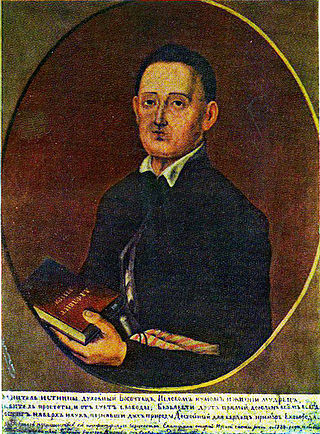 4
Hryhorii Savych Skovoroda was a philosopher of Ukrainian Cossack origin who lived and worked in the Russian Empire. He was a poet, a teacher and a composer of liturgical music. His significant...
4
Hryhorii Savych Skovoroda was a philosopher of Ukrainian Cossack origin who lived and worked in the Russian Empire. He was a poet, a teacher and a composer of liturgical music. His significant...
Adam Mickiewicz
 4
Adam Bernard Mickiewicz was a Polish poet, dramatist, essayist, publicist, translator and political activist. He is regarded as national poet in Poland, Lithuania and Belarus. He also largely...
4
Adam Bernard Mickiewicz was a Polish poet, dramatist, essayist, publicist, translator and political activist. He is regarded as national poet in Poland, Lithuania and Belarus. He also largely...
Panas Myrny
 4
Panas Myrny was a famous Ukrainian prose writer and playwright writing in Ukrainian language. He wrote in literary realism creating innovative social novels and stories from the life of the people.
4
Panas Myrny was a famous Ukrainian prose writer and playwright writing in Ukrainian language. He wrote in literary realism creating innovative social novels and stories from the life of the people.
Vasyl Stefanyk
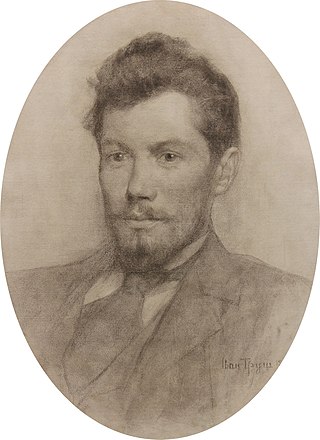 4
Vasyl Semenovych Stefanyk was an influential Ukrainian modernist writer and political activist. He was a member of the Austrian parliament from 1908 to 1918.
4
Vasyl Semenovych Stefanyk was an influential Ukrainian modernist writer and political activist. He was a member of the Austrian parliament from 1908 to 1918.
Myron Tarnavsky
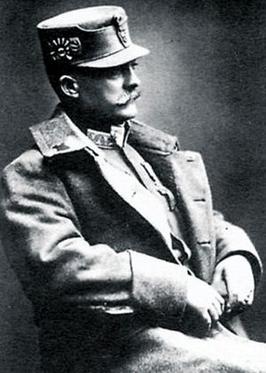 4
Myron Tarnavsky (Ukrainian: Мирон Тарнавський, was a supreme commander of the Ukrainian Galician Army, the military of the West Ukrainian People's Republic.
4
Myron Tarnavsky (Ukrainian: Мирон Тарнавський, was a supreme commander of the Ukrainian Galician Army, the military of the West Ukrainian People's Republic.
Садовый переулок
 4
Садо́вый переу́лок — название улиц в различных населённых пунктах бывшего СССР.
4
Садо́вый переу́лок — название улиц в различных населённых пунктах бывшего СССР.
Yuriy Fedkovych
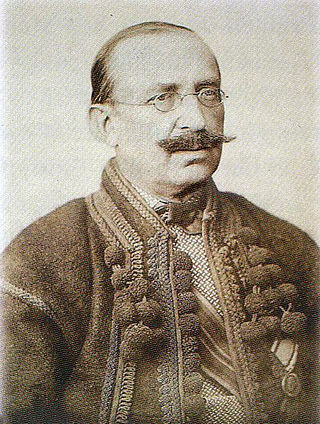 3
Osyp Yuriy Fedkovych was a Ukrainian writer, poet, folklorist and translator.
3
Osyp Yuriy Fedkovych was a Ukrainian writer, poet, folklorist and translator.
Lajos Kossuth
 3
Lajos Kossuth de Udvard et Kossuthfalva was a Hungarian nobleman, lawyer, journalist, politician, statesman and governor-president of the Kingdom of Hungary during the revolution of 1848–1849.
3
Lajos Kossuth de Udvard et Kossuthfalva was a Hungarian nobleman, lawyer, journalist, politician, statesman and governor-president of the Kingdom of Hungary during the revolution of 1848–1849.
Bohdan Lepky
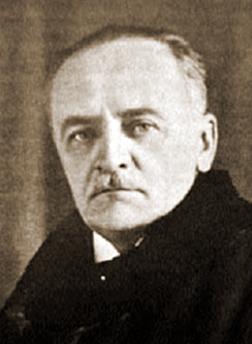 3
Bohdan Teodor Nestor Lepky, was a Ukrainian writer, poet, scholar, public figure, and artist.
3
Bohdan Teodor Nestor Lepky, was a Ukrainian writer, poet, scholar, public figure, and artist.
Alexander Dovzhenko
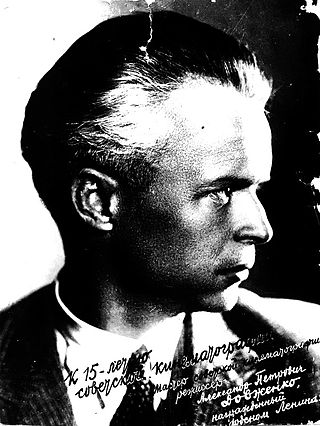 3
Alexander Petrovich Dovzhenko, also Oleksandr Petrovych Dovzhenko, was a Ukrainian Soviet screenwriter, film producer and director. He is often cited as one of the most important early Soviet...
3
Alexander Petrovich Dovzhenko, also Oleksandr Petrovych Dovzhenko, was a Ukrainian Soviet screenwriter, film producer and director. He is often cited as one of the most important early Soviet...
Ivan Petrov (army general)
 3
Ivan Yefimovich Petrov was a Soviet Army General from 1941.
3
Ivan Yefimovich Petrov was a Soviet Army General from 1941.
Dmitry Ilyich Ulyanov
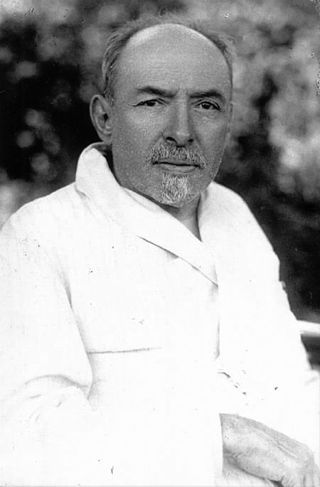 3
Dmitri Ilyich Ulyanov was a Russian and Soviet physician and revolutionary, the younger brother of Aleksandr Ulyanov and Vladimir Lenin.
3
Dmitri Ilyich Ulyanov was a Russian and Soviet physician and revolutionary, the younger brother of Aleksandr Ulyanov and Vladimir Lenin.
Sergei Korolev
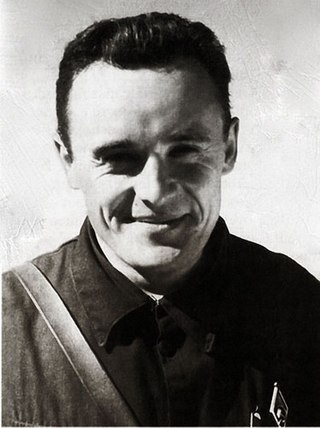 3
Sergei Pavlovich Korolev was the lead Soviet rocket engineer and spacecraft designer during the Space Race between the United States and the Soviet Union in the 1950s and 1960s. He invented the R-7...
3
Sergei Pavlovich Korolev was the lead Soviet rocket engineer and spacecraft designer during the Space Race between the United States and the Soviet Union in the 1950s and 1960s. He invented the R-7...
István Széchenyi
 3
Count István Széchenyi de Sárvár-Felsővidék was a Hungarian politician, political theorist, and writer. Widely considered one of the greatest statesmen in his nation's history, within Hungary he is...
3
Count István Széchenyi de Sárvár-Felsővidék was a Hungarian politician, political theorist, and writer. Widely considered one of the greatest statesmen in his nation's history, within Hungary he is...
Zoya Kosmodemyanskaya
 3
Zoya Anatolyevna Kosmodemyanskaya was a Soviet partisan. She was executed after acts of sabotage against the invading armies of Nazi Germany; after stories emerged of her defiance towards her...
3
Zoya Anatolyevna Kosmodemyanskaya was a Soviet partisan. She was executed after acts of sabotage against the invading armies of Nazi Germany; after stories emerged of her defiance towards her...
Oleksa Dovbush
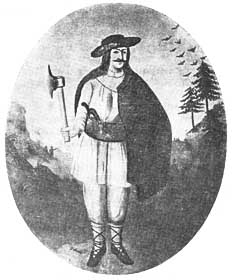 3
Oleksa Dovbush was a famous Ukrainian outlaw in the Polish–Lithuanian Commonwealth, leader of the opryshky movement, who became a folk hero.
3
Oleksa Dovbush was a famous Ukrainian outlaw in the Polish–Lithuanian Commonwealth, leader of the opryshky movement, who became a folk hero.
Pavlik Morozov
 3
Pavel Trofimovich Morozov, better known by the diminutive Pavlik, was a Soviet youth praised by the Soviet press as a martyr. Evidence has emerged since the dissolution of the Soviet Union of the...
3
Pavel Trofimovich Morozov, better known by the diminutive Pavlik, was a Soviet youth praised by the Soviet press as a martyr. Evidence has emerged since the dissolution of the Soviet Union of the...
Dmytro Vitovsky
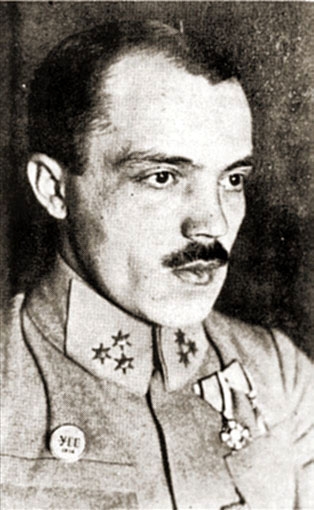 3
Dmytro Vitovsky was a Ukrainian politician and military leader.
3
Dmytro Vitovsky was a Ukrainian politician and military leader.